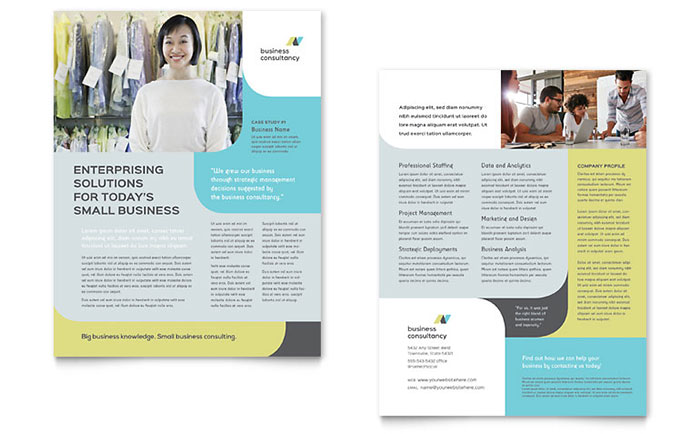
It is an easy and lucrative way to make money. There are many legal aspects to be aware. These include choosing the right business entity, obtaining licenses, ensuring your health and safety and dealing with tax issues. It is also important to ensure your employees have proper insurance.
Applying for a Business Credit Card
When applying for a business loan card, it is important to remember that many require good credit. Before applying for a credit card, it is important to have excellent or good credit. A good idea is to look for credit cards that come with employee cards.
A business credit card can help build your credit score and make it easier to get the best loans for your business. Business cards can also be used to receive rewards for purchases. This can help your bottom line. Business cards charge higher fees than personal ones. You can also have a negative impact on your credit score if business debt is not paid.

Selecting a name for your consulting business
It is a big decision to choose a name for your consulting company. Your expertise and position should be reflected in the name you choose. Customers will identify and remember your name. Apart from a name, your personal brand should be considered. Many consultants name their firms after their personal last names or first names.
You should consider legal, financial, as well as marketing aspects when choosing a name. For example, some businesses prefer a C corporation because the owners do not have personal liability for the business debts. However, incorporation is not necessary for every consulting business. Although incorporation can have many benefits, it requires more paperwork and is more time-consuming. It is important to weigh the benefits and drawbacks of each type and decide which business entity best suits your needs.
Choose a legal structure
Texas has many legal business structures available, including limited liability company and corporation. Your choice of business structure will affect how much paperwork you need to file, how tax implications impact you, your personal liability and how easy it is for you to raise funds. An attorney can help you if you have any questions.
As they limit liability, LLCs and partnerships are usually the best choice for consultants. However, they require more paperwork. You also have the option of general or limited partnerships. For consultants who have more than one partner, limited partnerships can be a good option.

Obtaining a business licence
There are several things that you should do when you start a Texas consulting firm. First, you must apply for a license to operate a business. While you don't typically need a federal business license, you might need one in your area.
There are a few different types of business licenses in Texas. Some are required, others are optional. It all depends on your business' nature and whether it will be conducted within the city limits. These requirements are best discussed with the city clerk. You'll also need a sales and use tax permit for your business. You can apply online to obtain a sales license or through your local municipality.
FAQ
What is the difference?
A consultant provides advice on a topic. Consultants offer solutions to problems.
To help clients achieve their goals, a consultant works directly with them. An advisor advises clients indirectly through books, magazines, lectures, seminars, etc.
What kind of contracts can consultants sign?
Standard employment agreements are signed by most consultants when they are hired. These agreements detail the length of the consultant's contract with the client, the amount he/she is paid, and other important details.
Contracts specify the area of expertise that the consultant will specialize in and the amount they will be paid. For example, the agreement may say that the consultant will provide training sessions, workshops, webinars, seminars, etc.
Sometimes, the consultant simply agrees that a specific task will be completed within a set time frame.
Many consultants sign independent contractor agreements in addition to the standard employment agreements. These agreements allow consultants to work independently while still receiving payment.
Is consulting a real job?
Consulting is not only an entry-level profession for those looking to make fast money, but it's also an excellent way to acquire valuable skills that you can apply throughout your career.
There are many opportunities for consulting, including project management, strategy, training and leadership. You could find yourself working with small start-ups and large international corporations.
Consulting allows you to learn and improve your skills while also gaining experience in many industries. This could involve learning to manage and negotiate teams, write proposals or manage budgets.
Is it necessary to pay taxes on consulting income
Yes, you will need to pay tax on your consultancy profits. The amount of your earnings per year will determine the tax payable.
You can also claim expenses if you are self-employed. This includes rent, childcare, food, and transportation.
But you won't be able to deduct interest payments on loans, vehicle depreciation, or the cost of equipment.
You can only claim back 25% of your expenses if you earn less than PS10,000 a year.
Even if you earn more than the threshold, you could still be taxed depending upon whether you are classified as a contractor and/or employee.
The PAYE tax for employees and the VAT tax for contractors is generally paid as you earn.
Do I require legal advice?
Yes! Yes. Many consultants sign contracts without seeking legal advice. This can create problems down the line. For example, what happens if the client terminates the agreement before the consultant's completion date? What happens if the contract stipulates that the consultant must meet certain deadlines?
To avoid any potential problems, it is best to consult a lawyer.
What was the origin of modern consultancy?
The first consultants were accountants that helped companies manage finances. They were able to manage financial information and became "accounting experts". However, this role soon expanded into other areas, such as human resources management.
The French word for advice, "consultant", was originally used to describe someone who could advise on the management of an organization. The word consultant is still used by most business owners to refer to any kind professional advisor.
What should I expect from my consultant
Once you select your consultant, you should expect to hear back from them within a few days. They will ask you for information about your business, including the mission, goals, products, and budget. They will then send you a proposal that outlines the scope of work and estimates timeframe, fees, deliverables, milestones and other details.
If everything is in order, then the parties will enter into a written contract. The terms of the contract will depend on the type of relationship between the two parties (e.g., employer-employee, employer-independent contractor).
If everything goes smoothly, the consultant can begin work immediately. You will have access both to your documents and internal resources and the consultant's skills and knowledge.
Don't assume that someone who is a consultant knows everything. To become an expert in any field you consult, it takes practice and effort. So, don't expect your consultant to know everything about your business.
Statistics
- "From there, I told them my rates were going up 25%, this is the new hourly rate, and every single one of them said 'done, fine.' (nerdwallet.com)
- According to statistics from the ONS, the UK has around 300,000 consultants, of which around 63,000 professionals work as management consultants. (consultancy.uk)
- On average, your program increases the sales team's performance by 33%. (consultingsuccess.com)
- My 10 years of experience and 6-step program have helped over 20 clients boost their sales by an average of 33% in 6 months. (consultingsuccess.com)
- Over 62% of consultants were dissatisfied with their former jobs before starting their consulting business. (consultingsuccess.com)
External Links
How To
What Does A Typical Day For A Consultant Look Like?
A typical day will vary depending on the type of work you are undertaking. However, the majority of your day will consist of research and planning, meeting clients and preparing reports.
Clients will often meet with you to discuss their problems. These meetings may be over the phone via email, on-line, or face-to–face.
Sometimes, you may be asked to create proposals. These are documents that outline your ideas and plans for clients. You will need to discuss these proposals with a mentor or colleague before you present them to clients.
You will need to create content after all your planning and preparation. For example, you could be writing articles, designing websites, creating videos, editing photos, or conducting interviews.
You may need to conduct research depending on the scope of your project to find relevant statistics and figures. For instance, you might want to find out how many people you have and if they are buying more than just one product or service.
Once you have enough information, it is time to present your findings and conclusions to clients. You may give your findings orally or in written form.
Finally, you must follow up with clients after the initial consultation. You might contact them regularly to check on their progress or send them emails to confirm they have received your proposal.
This process takes time, but it's important to ensure that you stay focused and maintain good relationships with clients.